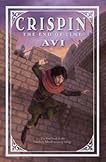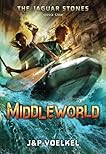Monday, October 20, 2008
Corlis Benefideo
I reread Barry Lopez's short story "The Mappist" on Thursday, and it grabbed me anew by the lapels.
It's a story about a cartographer—a sort of platonic ideal of a cartographer—and writer named Corlis Benefideo. If you haven't read it before, please do. There's an free unauthorized text here (you need to scroll down), or you can read the legal version in his short story collection Light Action in the Caribbean, or pay $2100 for the limited edition by Charles Hobson (again, scroll down), or (I haven't done this but I hear his reading is great) listen to Lopez reading the story.
Go on, read it.
OK, so when I talked about the story last year on CartoTalk, I was unsure about the whole cartographer as ideal hero thing. I'm still not sure, although as Martin Gamache said on that thread, there is a part of me wants to "drink the Koolaid."
What got me this time, in a way it hadn't before, was not so much the wonderful maps Benefideo makes, as it is his revelation of the narrator's situation. From near the end of the story, Benefideo says to the narrator:
“You represent a questing but lost generation of people. I think you know what I mean. You made it clear this morning, talking nostalgically about my books, that you think an elegant order has disappeared, something that shows the way.” We were standing at the corner of the dining table with our hands on the chair backs. “It's wonderful, of course, that you brought your daughter into the conversation tonight, and certainly we're both going to have to depend on her, on her thinking. But the real question, now, is what will you do? Because you can't expect her to take up something you wish for yourself, a way of seeing the world. You send her here, if it turns out to be what she wants, but don't make the mistake of thinking you, or I or anyone, knows how the world is meant to work. The world is a miracle, unfolding in the pitch dark. We're lighting candles. Those maps—they are my candles. And I can't extinguish them for anyone.”
There's a lot packed into that paragraph, and so it's easy to gloss over in the flow of reading fiction.
Benefideo is pointing out our love for "maps the way they used to be made" and that, to the contrary, he is making them not like he was taught, but as he thinks they ought. For all the trappings of old-fashioned tools and craft, he is in fact exploring new territory.
The middle bit echoed for me the old Quaker bit, Margaret Fell quoting George Fox's preaching "What canst thou say?" Except instead of scripture it's pointing to our received knowledge othe world. It's easy and quick to gloss over this as a typical challenge to go out and do good, but it's more subtle than that.
It's a conscious rejection of the idea of "reference" which forms the backbone of the idea of cartography—the idea that there is a certain set of facts about the world that we can start with. It makes reference a much more fluid concept. That bit about lighting candles in the pitch blackness reveals Benefideo not as some sort of super-perceptual being who is expressing what he knows. He is really an explorer who knows nothing but records what he finds.
Posted by natcase at 4:06 AM
Labels: fiction, Quakers, reference
Monday, October 20, 2008
Subscribe to:
Post Comments (Atom)































No comments:
Post a Comment